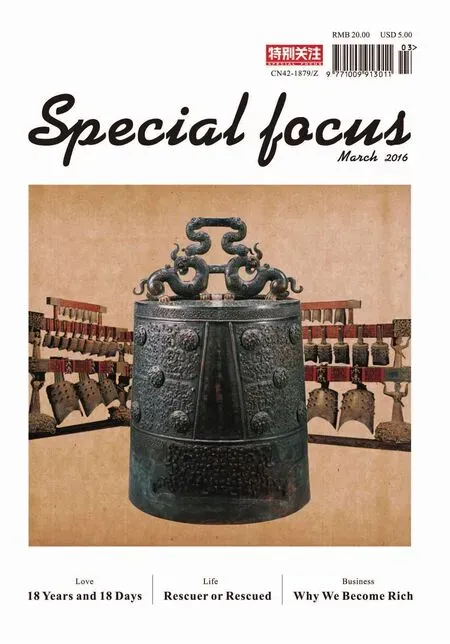Hardworking Isn't Everything
By Wei Xin
Hardworking Isn't Everything
By Wei Xin

I’ve been living in the eastern part of the United States for a long time.Oscillating between the tranquility of erudite Boston and the pragmatism of bustling New York,I’ve thus found myself a great contributor to ticket sales of bus companies due to my frequentcommutebetweenthetwo cities.
In the early years when I first came toAmerica to study,the bus line from Boston to New York was mainly run by an American bus company called Greyhound,whose ticket fare cost more than 40 dollars.Yet with the founding of the Chinese company Fung Wah,many bus commuters moved over to the new comer,especially because the price of a ticket there was only$10,and later$15 after a rate hike.Like most of the price-sensitive Chinese,Black and Latin American immigrants,I,too,switched to Fung Wah due to my limited budget.
However,Fung Wah eventuallybecameits own worst enemy.A series of severeaccidents happened to Fung Wahbuses,either crashescausedby over-worked drivers,or speeding,or tire blow-outs on the freeway due to lack of vehicle maintenance.Another time,a blind man with a guide dog was turned away due to the company rule that pets were not allowed on the bus.The blind man sued Fung Wah for discrimination against the disabled.Fung Wah was fined millions of dollars,and closed by the traffic control department.

If we take a careful look at Fung Wah,we will find problems hidden among its competitive advantages.
First of all,their employees were mainly diligent Chinese immigrants with wages much lower and working time much longer than the industry average. Driving fatigue seemed to be an inevitable side affect.Secondly,to keep thefareslow,the company naturally had to put less money into vehiclemaintenance and insurance,making it more prone to frequent accidents.Finally,unfamiliar with local customs,and unwilling to spend money onlawyers,the company was unpreparedtoservethe needs of the typical American passenger,with his deeply ingrained awareness of legal rights.Thus, despite the traditional Chinese virtues of diligence and thrifty management,Fung Wah became a frequent defendant in lawsuits.
From the fierce competition between the two companies on this bus line, manyinvestorswhosmelledmoney joined in the foray.
At the South Boston Station,both American-owned and operated companies like Mega Bus and Bolt Bus,and manyChinese-ownedcompanieslike Lucky Star emerged in succession.They took the$15 ticket fare of Fung Wah as the industry standard,and offered us commuters more options.
Despite its higher ticket prices,Mega Bus seemed more appealing than Chinese buses.
They use double-decker buses driven by one driver that lowered the company’s overhead.In addition,through online ticket sales and fares adjustable according to the sales volume,more passengers were attracted to Mega Bus.
In a few years,Mega Bus,with its distinctoperatingfeatures,promptly seized the vacuum in the market left by Fung Wah’s closure,while Lucky Star, another Chinese bus company,could no longer maintain a greater price advantage due to the then stricter government security control.Now years later,Mega Bus charges$34 for a ticket,and Lucky Star$28.But passengers no longer care much about the$6 difference.
American passengers are more cognizant of safety and legality.American companies are more apt to reduce costs and increase revenue by the means of large-scale production,accurate operation control through statistical algorithms and differential pricing.In this way,they profit and satisfy the needs of both customers and employees,forming a positive cycle.
Fung Wah surely had its own merits, thoughChinesediligencesomehow seemed a disturbance in the free competition of the American market.
From the ups and downs of these companies,we not only catch a glimpse of the Chinese immigrants’life abroad and business competition in America, but also China’s immersion into the global economy and relocation of mass capacity abroad.The Fung Wah’s experience might have shown the challenge many Chinese companies will have to face in entering European and American markets.
Diligence is obviously an important virtue.Yet mere diligence of the work force is no longer a competitive advantage in the modern society,especially in the United States,a place with a well-established legal system and high-tech industries replacing labor-intensive ones.
(FromVistaVol.12,2015.Translation: Jessie White.Illustration:Liu Hong)

